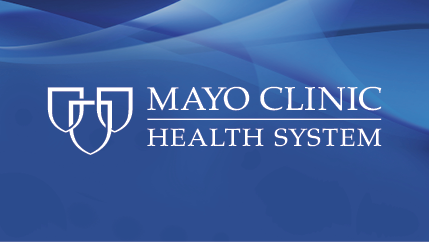Recent Posts
9 common questions about vaccines and travel

Travel does more than just transport you to a different place. It can broaden your perspective, increase your happiness, give you a chance to try new things, boost your creativity and help you recharge. Even planning a trip can be an exciting task. The anticipation of mapping an itinerary and scheduling your must-see attractions can bring a lot of joy and happiness.
One of the most important tasks before taking a trip is to make an appointment with a travel medicine specialist. These health care professionals help keep travelers safe and happy before and after their journeys.
Here are answers to common questions about travel medicine:
1. Who should make an appointment with a travel medicine specialist?
Anyone planning a trip overseas can benefit from seeing a travel medicine specialist. However, a travel clinic appointment is critical if you are traveling to underdeveloped or developing countries where there's a higher risk of contracting severe communicable illnesses while abroad. It is also important for patients with certain medical conditions that make their immune systems weaker and more vulnerable to infectious diseases.
2. What vaccinations do I need to travel overseas?
All travelers should be vaccinated against the flu and current with COVID-19 vaccines and boosters.
In addition, it's important to complete the adult vaccination schedule that includes vaccinations for:
- Chickenpox (varicella)
- Diphtheria, tetanus and pertussis (DTP)
- Pneumococcal
- Measles, mumps and rubella (MMR)
- Polio
- Shingles
Additional vaccines may be recommended depending on your travel itinerary. For example, hepatitis A vaccination is recommended if you are traveling to Southeast Asia. During your appointment, we can discuss which vaccines are appropriate for your itinerary.
3. Are there travel destinations that have different vaccination recommendations?
Yes. Infectious diseases thrive in different climates. If you travel to a new climate, you may be exposed to diseases to which you don't have any immunity.
Some infections are more prevalent in tropical settings compared to temperate climates. For example, typhoid and hepatitis A are more common in Southeast Asia because these communicable diseases can be spread through contaminated water. Some areas of Africa and South America have a higher prevalence of yellow fever and malaria, which are mosquito-borne infections.
The Centers for Disease Control and Prevention (CDC) has good information online for travelers for each travel destination.
Recommended vaccines may include:
- Hepatitis A
- Hepatitis B
- Japanese encephalitis
- Meningitis
- Rabies
- Typhoid
- Yellow fever
4. Can my primary care provider give me travel vaccinations?
It depends on your travel destinations and vaccine recommendations. I recommend starting the conversation with your primary care provider and reviewing the CDC recommendations.
If you have a complex itinerary with multiple countries or are traveling to Southeast Asia or Africa, it's better to make an appointment at the travel clinic. I also would recommend patients with organ transplants and immunocompromising conditions seek travel medicine consultation to reduce the risk of illness during travel. During that appointment, we will review your itinerary, provide necessary vaccinations and discuss ways to prevent mosquito-borne or tick-borne diseases.
5. How long before my trip should I go to the travel clinic?
Plan to have an appointment at least four weeks before you travel. Some vaccines require several weeks for immunity to develop, while others require more than one dose of vaccine for full protection.
If your trip is to an underdeveloped or developing country, you may need to schedule an appointment up to two months in advance to receive a complete set of immunizations. This gives your body time to produce the protective antibodies, so you are well protected when you land at your destination.
6. Can I only go to the travel clinic before I travel?
No. The Travel and Tropical Medicine Clinic is available before or after travel. The team can provide consultative services and treatment if you get sick after you return home.
7. I'm going to an all-inclusive resort. Will I have a lower risk of getting sick?
Maybe, but no traveler should take safety for granted. Even in an all-inclusive resort, knowing how food is prepared or the water supply quality is not possible. Mosquitos and other insects could still be a concern. It's important to take all necessary precautions and follow vaccination recommendations when you travel, regardless of your accommodations.
8. How do I lower my risk of malaria when traveling?
Malaria is a disease caused by a parasite. It's spread to humans through the bites of infected mosquitoes. Prophylactic malaria medications are available and are started before the travel, continued during the stay and for a certain duration after returning home. A travel medicine specialist can review the risks and benefits of all prevention and treatment options.
9. How do I stay healthy while traveling?
Nothing can ruin a trip like illness. Make sure all your vaccinations and boosters are up to date, and get any new vaccinations recommended for your destinations.
Food and water safety is important while traveling. Only eat well-cooked food. Avoid eating from roadside stands and uncooked foods, like salad and raw vegetables. Drink bottled beverages only, including bottled water. This is especially important if you travel in resource-limited regions, such as Southeast Asia or Africa.
Hand hygiene is important at home and overseas. Wash your hands often using soap and hot water. Avoid crowded places, follow respiratory etiquette and consider optional masking. Mosquitos and bugs can transmit parasites and diseases, like yellow fever and malaria. Use mosquito repellents. Mosquito nets may be appropriate in some parts of the world, as well.
As you make travel plans, schedule an appointment with a travel medicine specialist to get the vaccinations and information you need to be healthy and safe on your journey.
Raj Palraj, M.D., is a physician in Infectious Diseases and Travel and Tropical Medicine in La Crosse, Wisconsin.





